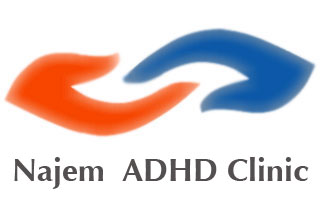SYMPTOMS OF ADD in Adults
Although the exact prevalence in adults is unknown, epidemiologic studies thus far reveal that the condition, marked by inattentiveness, difficulty getting work done, procrastination, or organization problems, probably exists in about 2-4% of adults. Adults' symptoms may manifest themselves differently from children's. Often the most prominent characteristic in ADD adults is difficulty with executive functioning, which is the brain activity that oversees the ability to monitor a person's own behavior by planning and organizing.
Signs & Symptoms:
- Adults who have symptoms of ADD may:
- Fidget or squirm with hands and feet
- Blurt out answers before the questions have been completed
- Often interrupt others during conversations
- Difficulty in unwinding or relaxing when there is free time
- Difficulty in getting things done when organization is required
- Leave seat during meetings
- Trouble wrapping up the final details of a project
- Problem remembering appointments or obligations
- Avoid tasks that require lots of thought.
How is it diagnosed?:
The diagnosis of ADD in adults requires retrospectively establishing whether the symptoms were also present in childhood, even if not previously recognized. As with other mental disorders such as schizophrenia there is no objective "test" that diagnoses ADD. Rather, it is a combination of a careful history of symptoms up to early childhood, including corroborating evidence from family members, previous report cards, etc. The screening tests also seek to rule out other conditions or differential diagnoses such as depression, anxiety, or substance abuse.
Formal tests and assessment instruments such as IQ tests, standardized achievement tests, or neuropsychological tests typically are not helpful for identifying people with ADD. Furthermore, no currently available physiological or medical measure is definitive diagnostically. However, psycho-educational and medical tests are helpful in ruling in or out other conditions (e.g. learning disabilities, mental retardation, allergies) that may be associated with ADD-like behaviors.
Treatment
Treatment for adult ADD may combine medication and behavioral, cognitive, or vocational interventions. Treatment often begins with medication selected to address the symptoms of ADH, along with any comorbid conditions that may be present. Medication alone, while effective in correcting the physiological symptoms of ADD, will not address the paucity of skills which many adults will have failed to acquire because of their ADD (e.g., one might regain ability to focus with medication, but skills such as organizing, prioritizing and effectively communicating have taken others time to cultivate).
